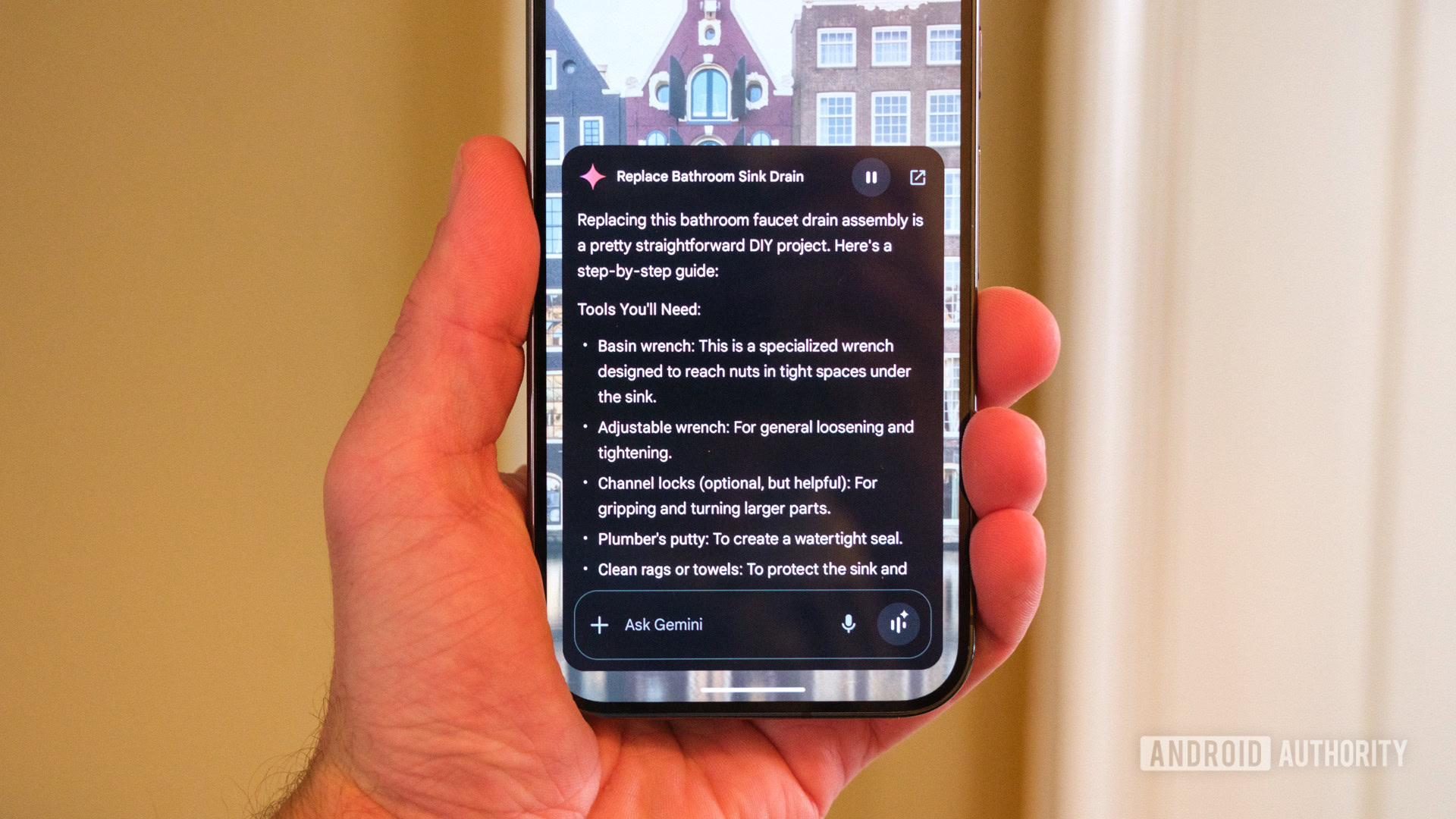Scammers Stole the Website for Emerson College's Student Radio Station and Started Running It as a Zombie AI Site
Earlier this month, student leaders at Emerson College's student radio station, WECB, received an urgent email from a student peer — but one on the opposite side of the country, in Oregon, who noticed something alarming. "Yo!!!" read the email's subject line. "There's an AI website using your identity!" The Oregon-based journalism student went on to explain that a professor at her university had, in class, pulled up what they believed to be an article published by WECB. (According to the student, the professor was using it as an example of "student-written solutions journalism.") But the story, which was published […]


Earlier this month, student leaders at Emerson College's student radio station, WECB, received an urgent email.
"Yo!!!" read the subject line. "There's an AI website using your identity!"
The email was from a student at the University of Oregon, who went on to explain that her professor had, in class, pulled up what they believed to be an article published by WECB. According to the emailer, the professor had cited the story as an example of "student-written solutions journalism."
But the article, which was published in March and covered Iceland's experiment with four-day work weeks, immediately seemed fishy. As the Oregon student noted, its featured image looked like it was AI-generated. So did its text, which was stilted and strange, and overall just not very good. The article also wasn't even about music, the topic that WECB and its associated publication, Milk Crate, are dedicated to.
When the Oregon student dug further, she saw that there were, in fact, two WECB websites — one that looked real, and another that looked suspiciously AI-mangled.
Her instincts were correct. The story her professor had cited was the product of the undead carcass of an old WECB domain, which scammers had scooped up and transformed into an AI-powered content farm — complete with fake, AI-generated authors, AI imagery, and boatloads of misinformation — designed to trade on WECB's name and Google standing for profit.
It's an old model for SEO scammery: snatch up a trustworthy domain when it expires, and use it to farm low-quality SEO-targeted content meant to cash in on lucrative display ads.
But while nabbing established domains and running them as shambolic husks is nothing new, generative AI tools that can spin up whole websites and churn out articles in the blink of an eye has drastically lowered the bar of entry. Using AI to farm paper-thin sludge is fast and cheap, yet with just a thin aura of legitimacy, sloperators can make some very real money — in this case, at the expense of frustrated student journalists at a historic college in Boston.
We first caught wind of the zombie site, which was housed under the domain name "WECB.fm," when it surfaced in a Futurism staffer's Google News algorithm with an article touting an unhinged-looking headline alleging that the actor Richard Gere had somehow fallen into homelessness.

We need to back up for a second, because there are serious layers to how wrong and weird this Gere article is.
The Golden Globe-winning Gere is not and has never been homeless, but played an unhoused person in the 2015 movie "Time Out of Mind." Around the time the movie was released, as USA Today reported at the time, a photo of Gere on set went viral — not because Gere had shared it, but because a random poster had published the photo with a fake caption pretending to be the actor. In that fake caption, the poster — again, pretending to be Gere — falsely claimed that he'd gone "undercover in New York City as a homeless man," and that the experience was so moving that he later walked around that day giving $100 bills out to every unhoused person he saw. The "Pretty Woman" actor quickly clarified that he absolutely did not take to the streets in a homeless stunt, and hadn't been handing out Franklins, either.
The allegedly WECB-published article we caught cropping up in Google News, however, bungles virtually every aspect of the story. The mangling starts with the headline — "Richard Gere's Fall From Grace : [sic] How the Actor Became a Homeless Man" — which suggests that Gere was legitimately homeless. The body of the article then contradicts the headline, erroneously claiming the Hollywood star spent time masquerading as a homeless man while preparing for his movie role. Which, again, was a random internet lie to begin with.
And somehow, things only got worse from there. The article claimed that the film in question was a 2017 movie called "The Invisibles," a strange error that appears to be derived from the film's Spanish-language title of "Invisibles," rather than it's actual English-language title of "Time Out of Mind." It also fabricated a quote from the actor, and repeatedly misspelled the name of Gere's character. (Some of these errors suggest that poor-quality machine language translation tools might be at play here.)
In other words, the whole thing is a bizarre, mutilated rehashing of viral misinformation that the "Arbitrage" actor had to personally correct a full decade ago.
We also couldn't find any record of the article's listed author, an alleged "Sarah Jensen," anywhere outside of the site, even though her bio describes her as an experienced and "dynamic 30-year-old American web content writer."
"Based in the creative hub of Austin, Texas," the lengthy byline continues. "Sarah's passion for all things entertainment and tech is matched only by her skill in conveying that enthusiasm through her writing." Reverse image searches for Jensen's associated headshot, meanwhile, failed to return any matches, suggesting the use of AI. (We did find a few Sarah Jensens with varying histories in publishing, but none that came close to matching this Jensen's description.)

As we dug through the WECB.fm website, we were struck by the degree to which its owners sought to give it a surface-level veneer of credibility. Boasting an old WECB logo, it claims on its homepage to be the "100% student-run and creatively independent internet radio station of Emerson College," and even lists Emerson College's correct address and phone number. It even still links to the actual WECB radio stream.
Cracks in that first-glance facade aren't hard to find, though. Its homepage also features a mundane, college-brochure-esque portrait of its alleged student staff, who appears to be AI-generated as well.

And then, of course, there's the site's content, which is a heaping pile of AI sludge.
WECB.fm publishes content about a chaotic range of viral-bait topics, from backyard nuclear reactors to turkey eggs to dog "negotiation."
Probably the worst ooze on the site is an entire section devoted to churning out faux "interviews" with real musicians, from up-and-coming bands to big names like St. Vincent, the stage name used by the six-time-Grammy-award-winning alt-rocker Anne Clark. And speaking of Clark: her made-up WECB interview not only includes fake quotes attributed to the IRL rock star, but misgenders her repeatedly — a glaring mistake that student journalists staffing the actual WECB station and its associated Milk Crate publication probably wouldn't make. (An interview with Clark, after all, would be a huge get for a small college operation.)
Our review of the site found plenty more instances of plagiarism and fabricated quotes — that article about Iceland's four-day workweeks, in fact, was heavily plagiarized from The Guardian — boatloads of flat-out misinformation, and more fake Emerson student journalists.
One of them, "Christopher Johnson," claims in their bio to be a "dedicated writer and key contributor to the WECB website, Emerson College's student-run radio station." The blurb adds that Johnson is "passionate about music, radio communication, and journalism," and "helps shape the voice and identity of WECB, truly embodying its motto of being an inclusive, diverse, and enthusiastic music community." The headshot attributed to Johnson also appears to be AI-generated.
There are multiple Christopher Johnsons who have had successful careers in radio journalism and broadcasting. But none that appear to have any connection to Emerson, and no existing students with a footprint in Emerson College's journalism community.

The site wasn't just an algorithmic blip on Google News, either. We found it was also holding rank as the top Google search result for the query "WECB" — meaning it was ranking ahead of the actual WECB website, WEBC.live. (It was also ranking ahead of another real radio station in Alabama, which also uses the call sign WECB.)

When we reached out to the real WECB with what we'd found, the students who run it responded quickly — and with clear exasperation.
According to Sofia Giarrusso and Nathan Hillyard, seniors at Emerson and the co-editors-in-chief of WECB's associated music publication, Milk Crate, the impersonation ordeal began back in the fall of 2023. A Squarespace payment briefly lapsed, causing the station to momentarily lose its domain; before staff could rectify the error, someone else had already scooped it up. (Further complicating the issue, they say, was the fact that .fm is also the country code top-level domain for the Federated States of Micronesia. Emerson College isn't in Micronesia; it's in Boston.)
Unable to get their old domain back, they were "forced to rebrand to WECB.live," said Giarrusso. Not too long after, they noticed that someone had spun up the zombie site on their old domain.
"I was just a station DJ at the time. I quickly discovered the AI site, and initially laughed. I really couldn't believe that anyone could fall for such obvious scum," Giarrusso reflected. "But as I gained leadership through Milk Crate, the site became a creative burden."
Dealing with the fake site proved surprisingly tricky, though. Student journalism naturally changes guards a lot; it was unclear to staff whether the station's brand or logo was trademarked, and if they were, that's something that would've happened long before Giarrusso and Hillyard's time. And besides, it was the co-opting of the WECB likeness that was the problem, not the misuse of real WECB and Milk Crate articles.
In short, legally speaking, it was complicated. And as busy students with limited resources, they weren't in a position to hire lawyers or commit the time and energy to conduct intense legal research on their own. They relied instead on word of mouth, and as a Hail Mary, sometimes took to spamming Google with reports of phishing violations. (The zombie site doesn't seem to be phishing, which the students acknowledge, but they figured it couldn't hurt to try.)
It was a deeply weird situation. On the one hand, the site was profoundly irritating; as Giarrusso put it, the zombie sludge hadn't "completely tarnished" their reputation on campus, but it remained a "constant sore." And always, the threat of reputational damage loomed large.
"As a student-run publication, our staff (and myself) are doing all this work together to gain credibility and experience working for a publication and covering the local music scene," said Hillyard. "Having a ghost site out there surely detracts from our credibility and 'seriousness' as a whole."
"When we reach out to venues and artists we always make sure to link the correct site," he continued, "but should they do their own research they might very reasonably land in zombie land, which is a bad look for us."
We reached out to Google with questions about the phony AI site. The company responded quickly, and within a day, the undead imposter had disappeared from search results.
"Our spam policies prohibit using expired domains in an effort to manipulate Search rankings, and our systems detect and consider domain ownership changes," a spokesperson for Google told Futurism in a statement. "We take action against expired domain abuse, up to and including removing violative pages from Search."
The fake site still exists, but changed its URL to WECB.us following its manual Google demotion. As it stands, the sloperator behind the impersonator remains unclear. Interestingly, on the site's contact page, an embedded Google Maps view of Emerson's address and the surrounding area is in French. Vive la Boston!
We also sent a message to the listed email on the fake site's contact page, but didn't hear back.
As Vee Fidati recently wrote for Trill, university radio stations emerged in the 80s and 90s as a noncommercial "counterculture phenomenon," quickly becoming an important venue for student expression and music discovery. Students could experiment and take risks by playing emerging and independent acts. And on a practical level, college radio outlets and associated publications, like Milk Crate, are sandboxes where young DJs, producers, and writers can work hard to hone their craft — and hopefully, as a result, get a post-college foot in the door in the music and entertainment industries.
But recent years have seen a steep decline in the overall number of university stations, as cash-strapped colleges sell off their long-held radio assets to eager buyers (religious groups have been particularly zealous purchasers.) And in addition to being beholden to decisions made above them at their universities, student staffers keeping the lights on at college radio stations face many of the same challenges and unknowns that the media landscape is grappling with more broadly.
"Working as a student journalist is a thing of pure passion," said Hillyard. "None of our staff gets paid, and our minimal budget is tied up within privatized institution bureaucracy and is only released to us when we have zines to print or if we fill out the form right and can afford snacks for the launch party."
But "on the flip side of that, everyone who writes, designs, photographs, or edits for us is doing it because they also are just as excited about music and the local scene in Boston as us," he continued. "I'm quite proud of all the work we publish as a group, and do take offense when this robot site steals our platform and community just to run some ads to an invisible audience."
Hillyard also noted that he finds the fake WECB's "About Us" section on its homepage — where that picture of those smoothed-over, mannequin-like AI students sits — to be "particularly smug."
"Me and my friends are even prettier and cooler than those randomized corporate cutouts!" he declared.
But as frustrating as it's been, the phony site is the perfect foil for WECB, and the ideal of college radio writ large. The zombie WECB is an SEO front for braindead, profit-driven clickbait; at their core, the co-editors emphasized, the real WECB and Milk Crate are a space for community-building between peers, and the rewards of messy, dedicated, and thoroughly human creativity.
"A hollow zombie recreation can never accomplish what we've fostered: a safe place for music nerds to nerd out as much as their heart's content," said Giarrusso. "That's why I'm so hard-and-fast in my attitude towards AI and this whole zombie site ordeal — it undermines our community for lazy profit. Exactly the opposite of our greater goal."
Despite "this imitator out stealing some of our credibility, we're still going to keep on chugging," Hillyard added. "Regardless of these looming AI threats, we're having fun! AI can barely write about music and it certainly can't love it like we do."
More on AI and media: An AI Slop "Science" Site Has Been Beating Real Publications in Google Results by Publishing Fake Images of SpaceX Rockets
The post Scammers Stole the Website for Emerson College's Student Radio Station and Started Running It as a Zombie AI Site appeared first on Futurism.






























































































































